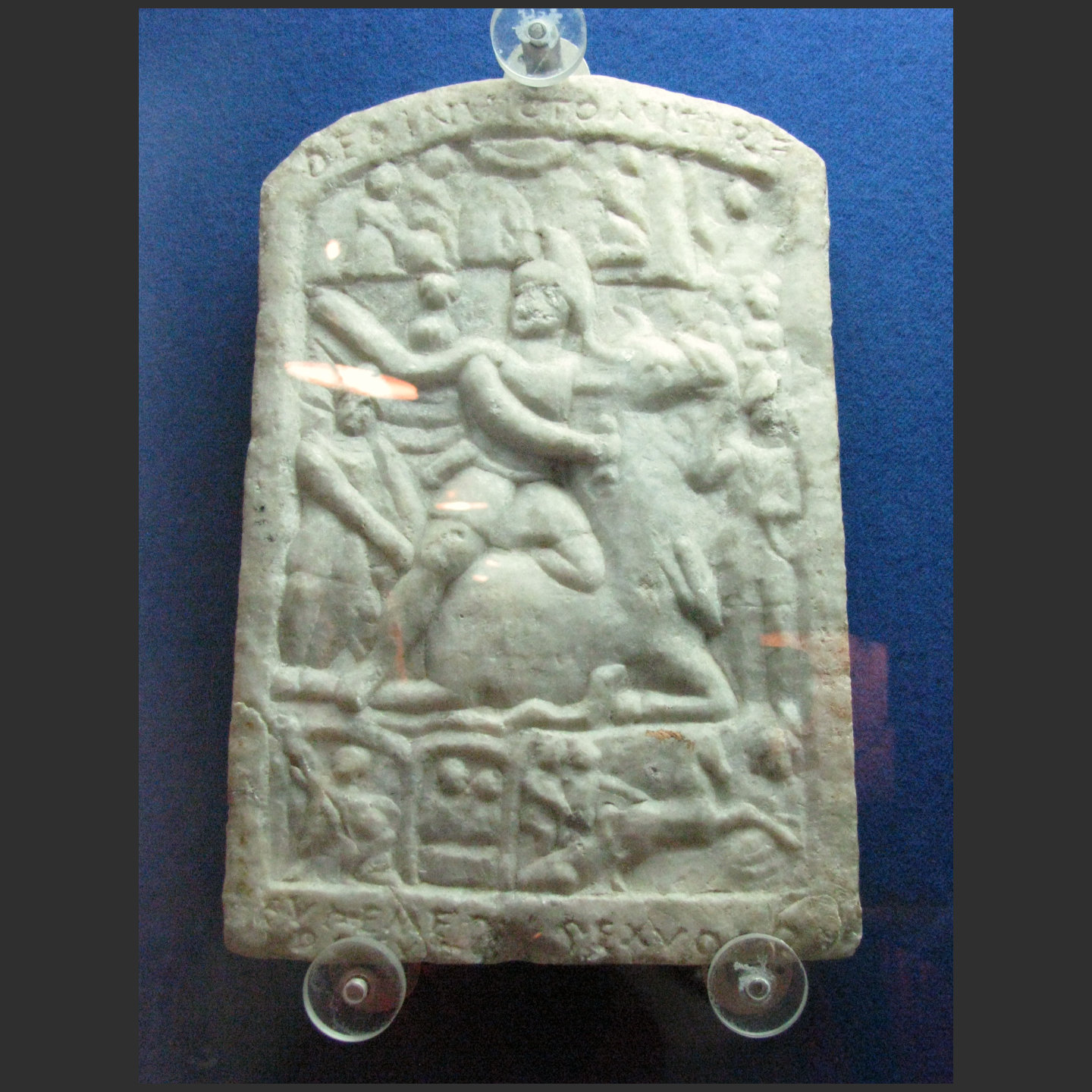
Euhemerus
Alias Suaemedus
Euhemerus was a Greek or Greco-Oriental man of modest status.
Biography
of Euhemerus
- Euhemerus was a syndexios.
- Active c. 2nd – 3rd century in Apulum, Dacia superior (Dacia).
TNMP 232
Regarding the name of Euhemerus inscribed on the tauroctony he had made in Apulum, Köppen read Su[.]emed[. ]s; Lajard, for his part, Sumemedius; Reinbold read supremis divis, accepted by Neigebaur; Ackner and Müller proposed supermfdivis; Mommsen, followed later by Cumont, Kerényi, Vermaseren and Detschew, in turn proposed Suaemedus, seen by the latter as a name of Thracian origin, and so followed by Pintilie; Cserni preferred suae medus. We follow Russu's reading, which is also accepted and followed by Piso (IDR III/5, 274).
The dedicator, Euhemerus, bears a name of Greek origin (Εὐήμερος; see Solin, DGPR, p. 794 ff., quoted by Piso), the same as that of the Greek rationalist philosopher of 300 BC who explained the gods of Greek mythology as human persons.
Euhemerus was a Greek or Greco-Oriental, of modest social status, probably a slave or freedman (see, for example, CIL III, 8807: C. Volusione Euhemero conlibert).
References
- Epigraphic Database Heidelberg. Tauroctony of Euhemerus from Alba Iulia in EDH
- Epigraphik-Datenbank Clauss / Slaby. Tauroctony of Euhemerus from Alba Iulia in EDCS
- Juan Ramón Carbó García (2010) Los cultos orientales en la dacia romana. Formas de difusión, integración y control social e ideológico
Mentions
Tauroctony of Euhemerus from Alba Iulia
TNMM 663
Several authors read the name Suaemedus instead of Euhemerus as the author of this mithraic relief from Alba Iulia, Romania.


Comments
Add a comment